Humans
Sign up for our newsletter
We summarize the week's scientific breakthroughs every Thursday.
-
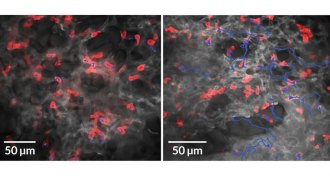 Health & Medicine
Health & MedicineLungs enlist immune cells to fight infections in capillaries
Immune cells in the lungs provide a rapid counterattack to bloodstream infections, a new study in mice finds.
-
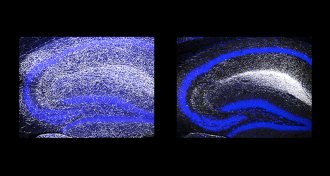 Neuroscience
NeuroscienceNerve cell miswiring linked to depression
A gene helps nerve cell axons extend to parts of the brain to deliver serotonin, a brain chemical associated with depression.
-
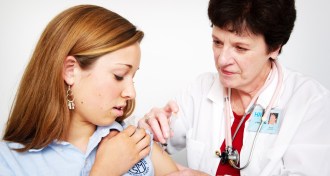 Science & Society
Science & SocietyHPV vaccine as cancer prevention is a message that needs to catch on
Vaccination against HPV is cancer prevention, but low vaccination rates suggest that message isn’t clear.
-
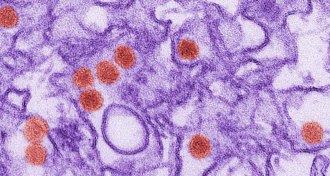 Health & Medicine
Health & MedicineZika hides out in body’s hard-to-reach spots
Zika virus sticks around in the central nervous system and lymph nodes of monkeys.
-
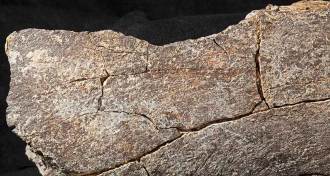 Archaeology
ArchaeologyFirst settlers reached Americas 130,000 years ago, study claims
Mastodon site suggests first Americans arrived unexpectedly early.
By Bruce Bower -
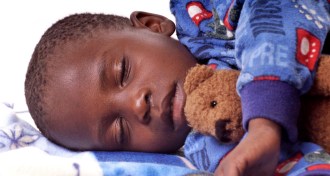 Health & Medicine
Health & MedicineLong naps lead to less night sleep for toddlers
Daytime naps can steal sleep from the night, a small study of toddlers suggests.
-
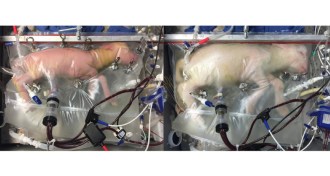 Health & Medicine
Health & MedicineFaux womb keeps preemie lambs alive
A device can keep premature lambs alive for a month in womblike conditions.
-
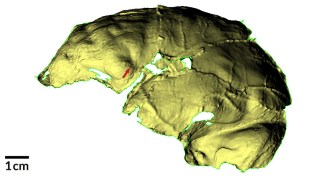 Humans
HumansHomo naledi’s brain shows humanlike features
South African Homo species had small but humanlike brain, scientists say.
By Bruce Bower -
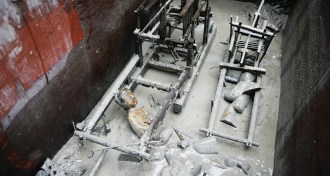 Archaeology
ArchaeologyOldest evidence of patterned silk loom found in China
Chinese finds offer earliest look at game-changing weaving machine.
By Bruce Bower -
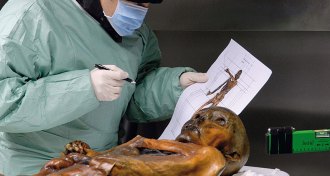 Anthropology
AnthropologyÖtzi the Iceman froze to death
Copper Age Iceman froze to death, with shoulder and head damage.
By Bruce Bower -
 Health & Medicine
Health & MedicineEvidence is lacking that ‘cocooning’ prevents whooping cough in newborns
In general, vaccinating adults who come into close contact with newborns is a good idea, but the practice on its own may not keep whooping cough away.
-
 Health & Medicine
Health & MedicineFrog slime protein fights off the flu
Urumin, a protein found in Indian frog mucus secretions, has a knack for taking down H1 flu viruses, a new study finds.